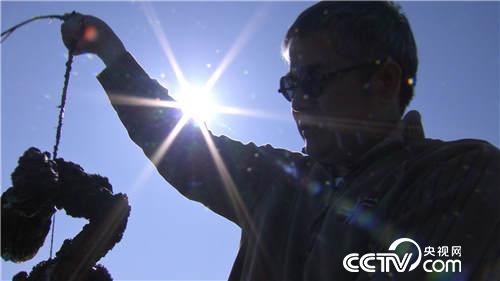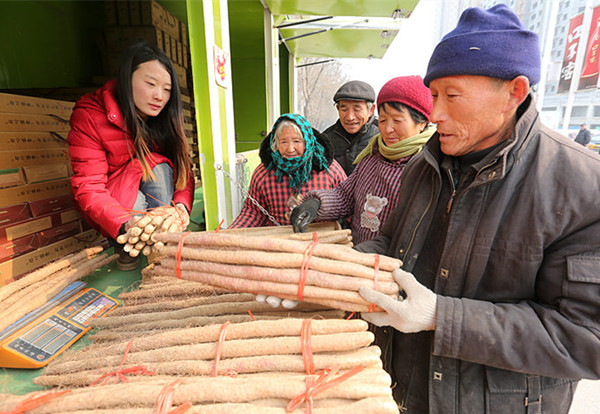Hongya's contractor went back to his hometown to grow tea and travel on the road to prosperity.
Known as "seven mountains, two rivers and one sub-field," the elevation difference in the county is more than 3000 meters, there are more than 300 rivers in large and small streams and ditches, the annual average temperature is 16.8 ℃, the average annual rainfall is 1493.8mm, the forest coverage is 65.7%, and the suitable tea soil reaches 223000 mu. Hongya is full of tea everywhere. The unique geographical environment and climate have created the quality of Hongya tea. In recent years, Hongya has relied on ecological resources to promote the development of tea industry and realize "ecologically strong counties and industries to enrich the people." Successfully established the "national pollution-free tea production demonstration base county"; emerged three "municipal key leading enterprises" of Shanglin, Yazi Tiancheng and Yayulu, four tea refining plants, more than 500primary production plants, two leading enterprises with an annual output value of more than 10 million yuan, four tea factories that have completed clean transformation, and an annual tea processing and sales capacity of more than 16000 tons in Hongya County, Meishan City. Hongya tea industry presents absolute advantages such as large-scale tea planting, improved varieties, intensive tea processing, product brand, quality and safety guarantee, excellent environment and so on. Tea ranks third in Sichuan Province.
When he returned to his hometown to start a business, Hongya's contractor grew tea and engaged in tourism, bringing rich villagers. Twelve years ago, Fu Zhihong, who was still a contractor in other places, returned to his hometown to start a business. Today, Fu Zhihong, 39, is not only the party branch secretary of Qianfeng Village, Zhongshan Township, Hongya County, but also the boss of a local tea company. By developing organic tea gardens and developing rural tourism, local villagers can make money and become rich.
"Last year, there were 61 poor households in our village, but this year there are less than 30." Fu Zhihong put forward the secret of getting rid of poverty: the barren hills of the village in the past are now planted with tea, and the villagers have a stable income through the circulation of land and working in the tea garden.
Fu Zhihong is a native of Zhongshan Township, Hongya County. His father died early at the age of 15, and he went out to work as soon as he graduated from junior high school. In Hongya County, he started as an apprentice plumber with no salary. Once at the construction site, he accidentally fell from a height, resulting in multiple fractures of the collarbone, cervical vertebra, fingers and so on. In spite of this, he never gave up starting a business.
In 1998, under the introduction of a friend, Fu Zhihong came to Ya'an Shimian County, where he painted paint. He kept improving, and the project he handled was rated as a model project in the local area. "naturally, more people come to me, and the business is getting bigger and bigger."
The three magic weapons of "quality, quantity and integrity" have enabled Fu Zhihong's construction company to accumulate good reputation and benefits in the circle. In his early 20s, he began to become a contractor and earned the "first bucket of gold" in his life.
The natural ecological environment of Hongya County is very suitable for tea cultivation. But in the past, there was a lack of leading enterprises, sales were in the initial stage of selling fresh leaves, the whole industry was at a low level, and the income of tea farmers was low. Zeng Jianqing, former deputy secretary of the party committee of Zhongshan Township, recalled that in the past, villagers "carried and sold fresh leaves in their pockets" and earned only a little more money than growing rice. "in 2004, the per capita net income of Qianfeng Village was less than 4000 yuan, which belongs to the middle level in the village."
In 2004, the party committee and government of Zhongshan Township found Fu Zhihong, who had a successful career, and hoped that he would contribute to the development of the tea industry in his hometown. Fu Zhihong, who has never been engaged in tea processing, was hesitant at first. He had never come into contact with tea processing. "the family also disagrees. If you do a good job in the project, the benefits are very good, so why do you want to make tea?"
However, Fu Zhihong recalled the past when he was 19 years old, when he worked hard to sell tea. "now that I'm rich, can I help the people in my hometown? later, I want to try." In 2004, Fu Zhihong set up a tea factory as a migrant worker returning to his hometown to start a business.
Fu Zhihong has made great efforts to develop organic tea gardens. at present, of the more than 5000 mu of tea bases established by his company, 3000 mu have passed the organic certification of China, the European Union, Japan and the United States.
In 2013, after Fu Zhihong was elected party branch secretary of Qianfeng Village with high votes, he organically combined the tea industry with tourism, built an organic tea village and developed rural tourism at the same time, adopting the five-person linkage model of "village committee + company + association + rural cooperative + tourism". At present, major areas such as tourist areas, cultural and educational areas, experience areas and fishing areas have been initially formed, attracting a large number of people from abroad to return to their hometown for employment and entrepreneurship.
Zhan Muju, a villager who is nearly 50 years old, has 10 mu of land, but his income is very small. Through the development of organic tea, Zhan Mu relied on the 10 mu of land and earned an annual turnover income of more than 6000 yuan. The three members of the family worked in an enterprise with an income of more than 50,000 yuan. "there were 61 poor households like Zhan Muju last year, but now there are fewer than 30." Fu Zhihong said, "by developing an organic tea base, it is just a demonstration. In the future, villagers will be able to do their own business and become rich."
Related
- A course of planting techniques and methods on how to grow carrots
- How to plant the latest tulips?
- Is it better to pick tea in the morning or in the afternoon? When is the best time for tea to be picked? what is the third or fifth tea?
- Launch Yuanxiao Happy combination Haocha + Tea Yuan healthy Taste
- Penghu Tourism "Fireworks 20 Parade with You"
- 2022 West Lake Happiness holds "Digital Revitalization Voucher" and draws iphone13 and laptop.
- Banqiao Fuzhou social houses are designed to change start-up combined with police elimination to create a safe and livable environment
- The convenient measure of "mechanical weeding" in Xinbei has been abused and the Agriculture Bureau has imposed heavy penalties on the illegal land consolidation.
- Changgeng University Joins Hands with Four Memory Factories to Rescue Memory Talent Shortage
- The list of Taiwan's top 100 MVP managers is listed by the Director-General of the Farmers' Association of Sanxia District.



